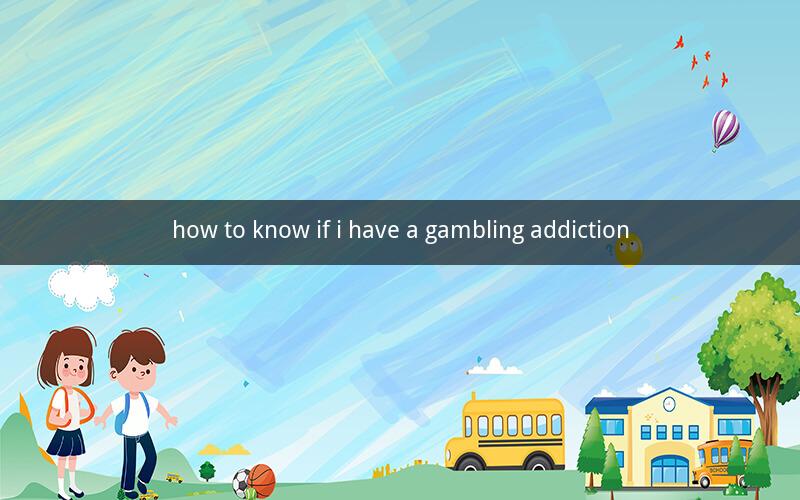
Table of Contents
1. Understanding Gambling Addiction
2. Recognizing the Signs
- Financial Problems
- Emotional Distress
- Social Issues
- Behavioral Patterns
3. Assessing the Severity
4. Seeking Professional Help
- Therapists and Counselors
- Support Groups
- Treatment Centers
5. Self-Help Strategies
- Budgeting and Financial Management
- Developing Healthy Coping Mechanisms
- Setting Boundaries
6. Preventing Relapse
7. Legal and Ethical Considerations
8. The Role of Technology in Gambling Addiction
9. Conclusion
1. Understanding Gambling Addiction
Gambling addiction, also known as problem gambling, is a compulsive and addictive behavior characterized by an individual's inability to control their gambling habits despite negative consequences. This addiction affects not only the individual but also their family, friends, and finances. Recognizing the signs and symptoms of gambling addiction is crucial in seeking appropriate treatment and support.
2. Recognizing the Signs
Gambling addiction can manifest in various ways. Below are some common signs to look out for:
- Financial Problems: Individuals with gambling addiction may experience significant financial difficulties due to their excessive gambling habits. This can include accumulating debt, missing payments, or selling personal belongings to fund their gambling.
- Emotional Distress: Gambling addiction can lead to emotional problems such as anxiety, depression, and mood swings. Individuals may experience increased stress, irritability, and moodiness.
- Social Issues: Relationships with family, friends, and colleagues may suffer due to the time and energy spent on gambling. This can include neglecting responsibilities, avoiding social activities, and isolating oneself.
- Behavioral Patterns: Individuals with gambling addiction may exhibit certain behavioral patterns, such as lying about their gambling habits, hiding their gambling activities, or becoming increasingly secretive.
3. Assessing the Severity
Determining the severity of a gambling addiction can help in choosing the appropriate treatment and support. Several assessment tools are available to help individuals evaluate their gambling habits, such as the South Oaks Gambling Screen (SOGS) and the Gamblers Anonymous Problem Gambling Test.
4. Seeking Professional Help
Professional help is essential in overcoming gambling addiction. Here are some options for seeking assistance:
- Therapists and Counselors: Mental health professionals, such as therapists and counselors, can provide individual or group therapy to help individuals overcome their gambling addiction.
- Support Groups: Support groups, such as Gamblers Anonymous and SMART Recovery, offer a community of individuals who share similar experiences and provide mutual support.
- Treatment Centers: Inpatient or outpatient treatment centers can provide comprehensive treatment for gambling addiction, including therapy, support groups, and other resources.
5. Self-Help Strategies
Individuals can take several self-help measures to manage their gambling addiction:
- Budgeting and Financial Management: Setting a strict budget and monitoring spending can help individuals avoid financial pitfalls.
- Developing Healthy Coping Mechanisms: Engaging in healthy activities, such as exercise, hobbies, and socializing, can help individuals cope with stress and reduce the urge to gamble.
- Setting Boundaries: Establishing limits on gambling time, money, and locations can help individuals maintain control over their gambling habits.
6. Preventing Relapse
Preventing relapse is crucial in overcoming gambling addiction. Individuals can take the following steps to reduce the risk of relapse:
- Maintaining Support Systems: Staying connected with friends, family, and support groups can provide emotional support and encouragement.
- Identifying Triggers: Recognizing and avoiding triggers that may lead to gambling, such as certain locations or social situations.
- Learning Relapse Prevention Skills: Developing skills to cope with cravings and stress can help individuals maintain their recovery.
7. Legal and Ethical Considerations
Gambling addiction can have legal and ethical implications. It is important for individuals to understand the laws and regulations regarding gambling in their jurisdiction and to seek legal advice if necessary.
8. The Role of Technology in Gambling Addiction
Technology has made gambling more accessible and convenient, which can exacerbate gambling addiction. Individuals should be cautious about using online gambling platforms and consider seeking help if they suspect they may have a problem.
9. Conclusion
Gambling addiction is a serious condition that can have profound effects on an individual's life. Recognizing the signs, seeking professional help, and adopting self-help strategies are essential in overcoming this addiction. By taking these steps, individuals can regain control of their lives and move towards a healthier, more fulfilling future.
Questions and Answers
1. Q: What are the common signs of gambling addiction?
A: Common signs include financial problems, emotional distress, social issues, and behavioral patterns such as lying and hiding gambling activities.
2. Q: How can I assess the severity of my gambling addiction?
A: You can use assessment tools such as the South Oaks Gambling Screen (SOGS) or the Gamblers Anonymous Problem Gambling Test.
3. Q: What types of professional help are available for gambling addiction?
A: Options include therapists and counselors, support groups, and treatment centers.
4. Q: What self-help strategies can I use to manage my gambling addiction?
A: Strategies include budgeting and financial management, developing healthy coping mechanisms, and setting boundaries.
5. Q: How can I prevent relapse in my gambling addiction recovery?
A: Preventing relapse involves maintaining support systems, identifying triggers, and learning relapse prevention skills.
6. Q: Are there legal and ethical considerations related to gambling addiction?
A: Yes, individuals should be aware of the laws and regulations regarding gambling in their jurisdiction and seek legal advice if necessary.
7. Q: How does technology contribute to gambling addiction?
A: Technology makes gambling more accessible and convenient, which can exacerbate gambling addiction.
8. Q: Can therapy help me overcome my gambling addiction?
A: Yes, therapy, including individual and group therapy, can be an effective treatment for gambling addiction.
9. Q: Are there support groups available for individuals with gambling addiction?
A: Yes, support groups such as Gamblers Anonymous and SMART Recovery offer a community of individuals who share similar experiences and provide mutual support.
10. Q: How can I find a treatment center for my gambling addiction?
A: You can search online for treatment centers in your area or contact local mental health organizations for referrals.